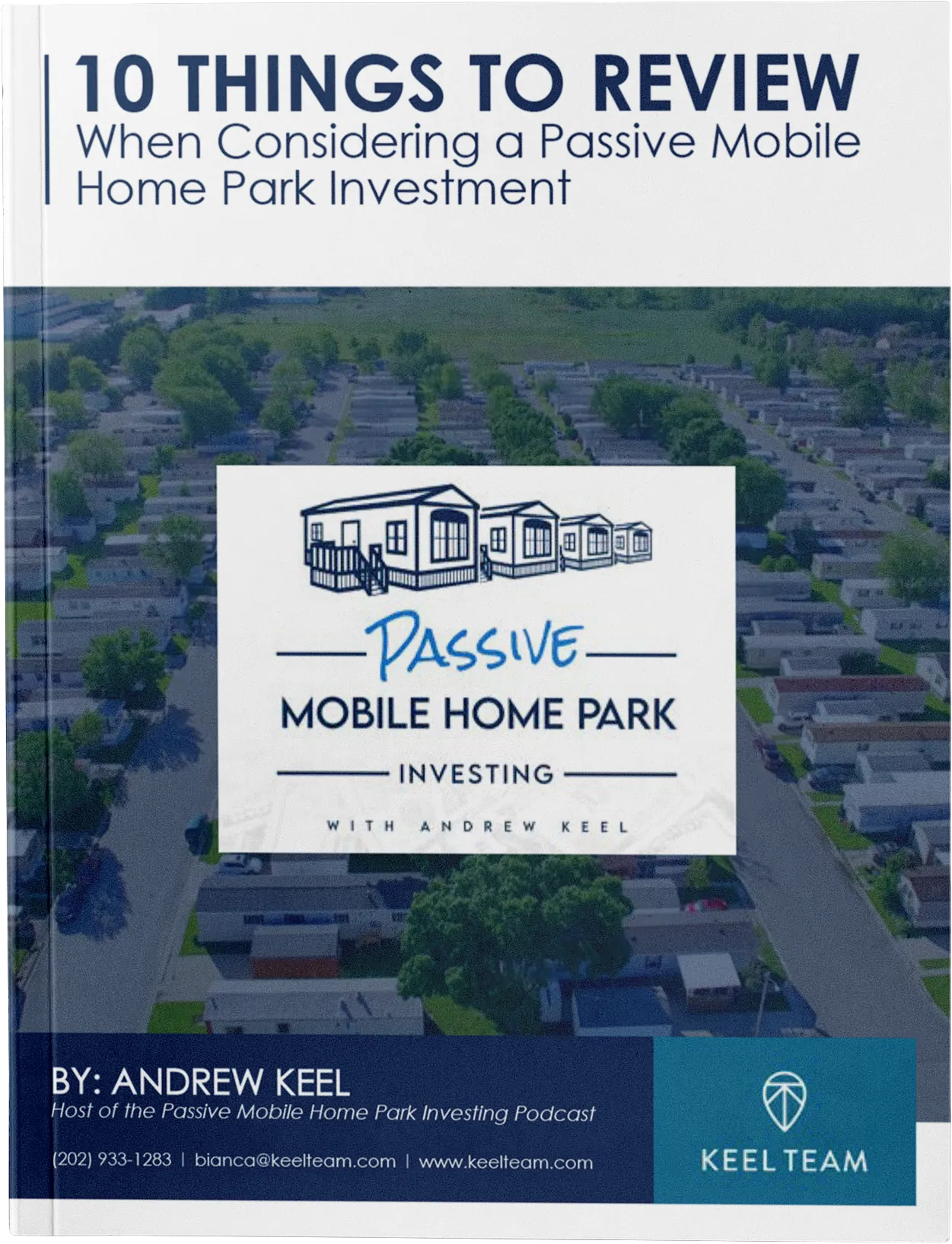Investors continually seek stable and profitable avenues to diversify their portfolios, and mobile home parks present a compelling potential opportunity. Known for their historical resilience during economic fluctuations, mobile home parks can likely be a strategic addition to a diverse passive investment portfolio. This article explores how incorporating passive mobile home park investments into your portfolio can help balance and potentially enhance your returns.

Understanding Passive Mobile Home Park Investments
Mobile home parks typically offer steady cash flow due to their lower turnover rates and operational costs compared to other types of residential assets. Since most of the mobile homes are owned by the residents who rent the land, the costs associated with unit turnovers and maintenance significantly decrease, potentially leading to a more consistent income stream. This can translate to passive income through distributions based on the equity split of the fund or syndication you are invested into.
As housing affordability continues to be a critical issue in many areas, the demand for economical living options such as mobile home parks remains high. This demand can possibly provide a level of economic stability to investors, coupled with the need for affordable housing remaining historically resilient during economic downturns.
Strategic Positioning in an Investment Portfolio
Risk Mitigation: Incorporating mobile home parks into an investment portfolio can likely mitigate risk through diversification. Generally, the unique market dynamics of mobile home parks, such as their counter-cyclical nature, mean they may not follow the same economic patterns as traditional real estate or financial markets, potentially providing a cushion against market volatility.
Inflation Hedge: Real estate is traditionally seen as a good hedge against inflation, and mobile home parks are typically no exception. Rents can be adjusted, and as property values and living costs rise, so potentially do the income and valuation of mobile home parks, possibly protecting investors against inflationary losses.
Download our FREE eBook on the “Top 10 Things to Review When Considering a Passive Mobile Home Park Investment “
By Andrew Keel
Investment Considerations for Mobile Home Parks
Regulatory Landscape: Investors need to understand the regulatory environment of mobile home parks, as it can vary significantly from one jurisdiction to another. Awareness of zoning laws, rent control regulations, and other legal considerations is often crucial to manage potential risks and ensure compliance.
Operational Expertise: Successfully investing in mobile home parks often requires specific knowledge about the sector. For passive investors, partnering with experienced operators who specialize in mobile home park management can be potentially beneficial. These partnerships can leverage expert knowledge and experience, likely reducing the burden of day-to-day management while still providing the possible benefits of ownership.
Mobile Home Park Investment Entry Strategies
Syndications and REITs: For those preferring a more hands-off investment, real estate investment trusts (REITs) or syndications that focus on mobile home parks offer an alternative. These options allow investors to pool their resources with others, spreading out risk and reducing the amount of capital required to enter the market.
Fund of funds: This approach can be applied to passive mobile home park investing by pooling capital to invest in various mobile home park funds, thereby potentially diversifying risk and gaining exposure to multiple properties and management teams, without the need for direct involvement. Such a structure allows investors to possibly benefit from specialized management and economies of scale.

Conclusion
Mobile home parks can be a potentially valuable addition to a diverse passive investment portfolio, often offering stability and profitability with the right management and understanding of the asset class. By providing affordable housing options in a high-demand market, mobile home parks typically serve a social need and also offer a resilient investment choice. Whether through direct ownership, partnerships, or pooled investment vehicles, mobile home parks can likely provide investors with a strategic hedge against economic volatility and inflation, contributing to a well-rounded and robust portfolio.
At Keel Team Mobile Home Park Investments, we focus on enhancing community well-being while aiming to maximize investor returns. Our dedicated team strives to elevate the quality of life for residents while securing strong returns for our limited partner investors. To learn more about our investment approach, please reach out using the contact details provided below.
Disclaimer:
The information provided is for informational purposes only and should not be considered investment advice, nor a guarantee of any kind. There are no guarantees of profitability, and all investment decisions should be made based on individual research and consultation with registered financial and legal professionals. We are not registered financial or legal professionals and do not provide personalized investment recommendations.

